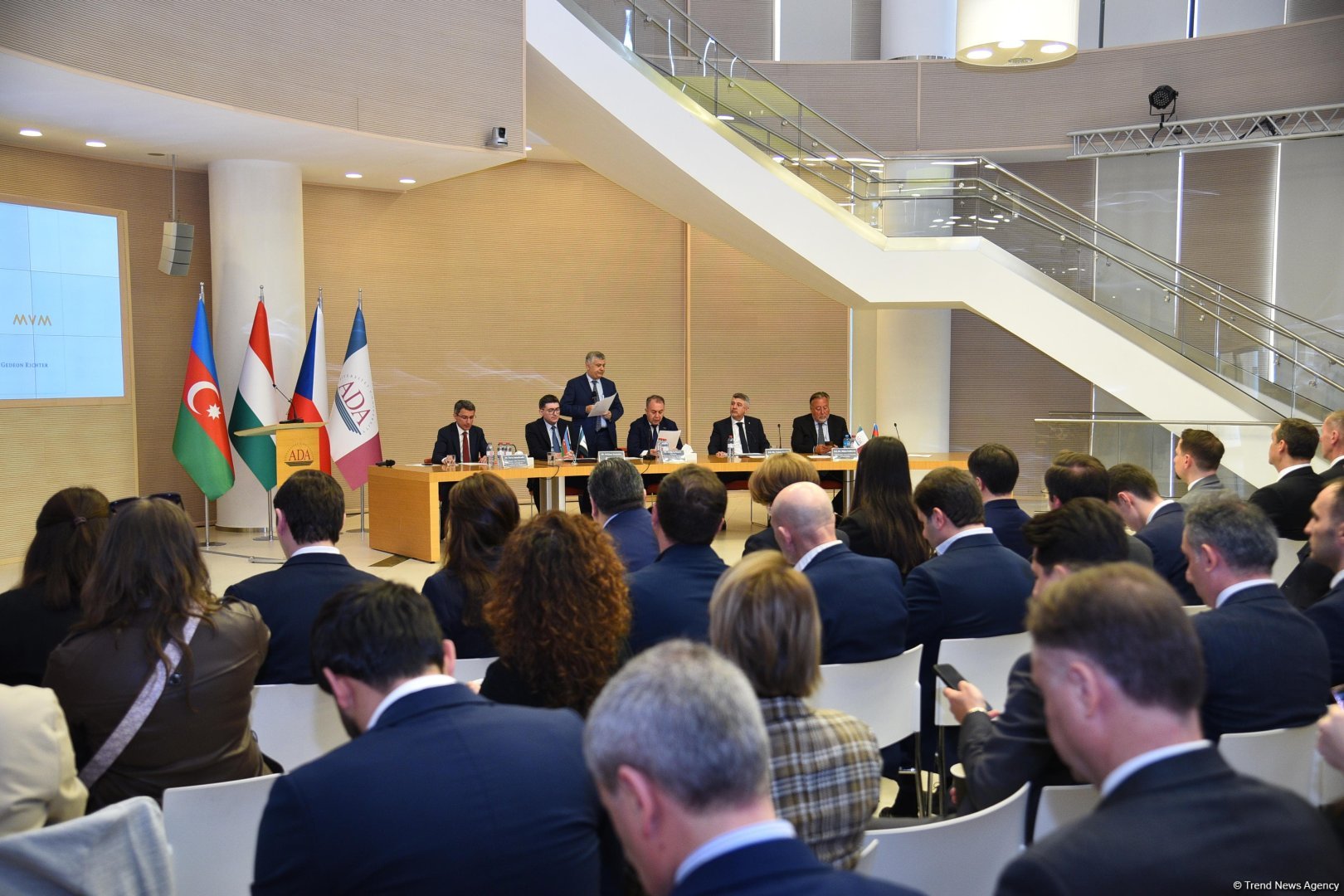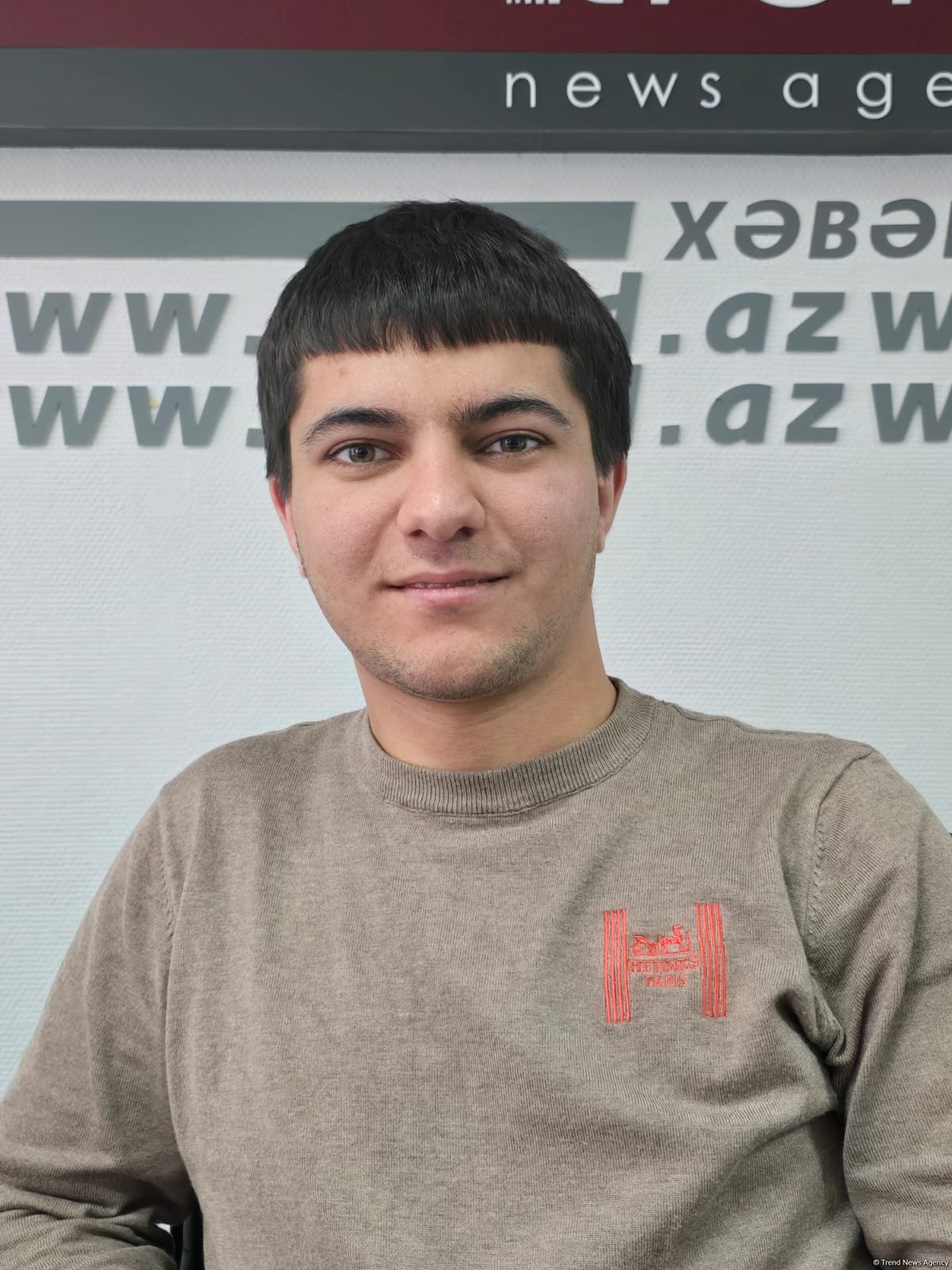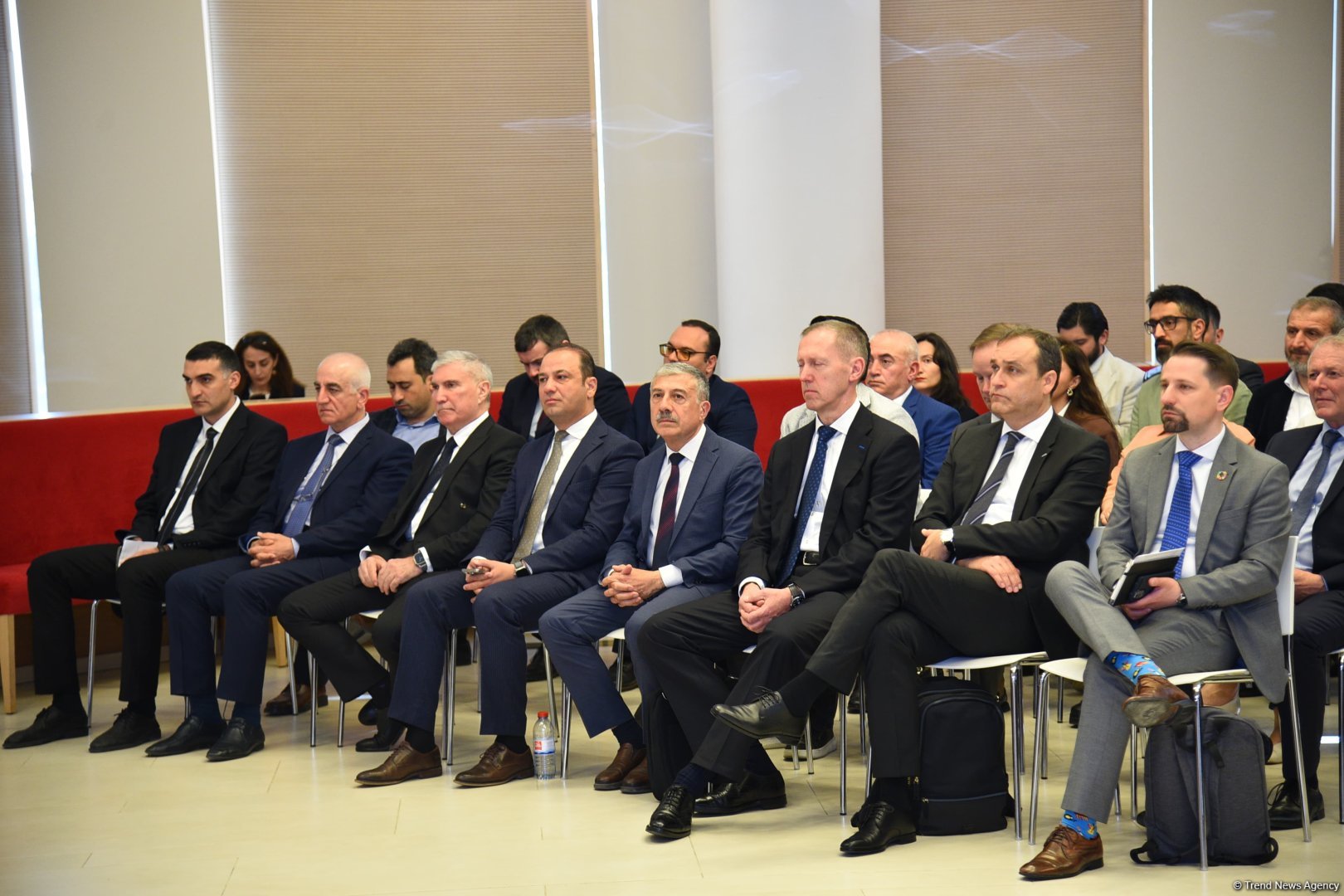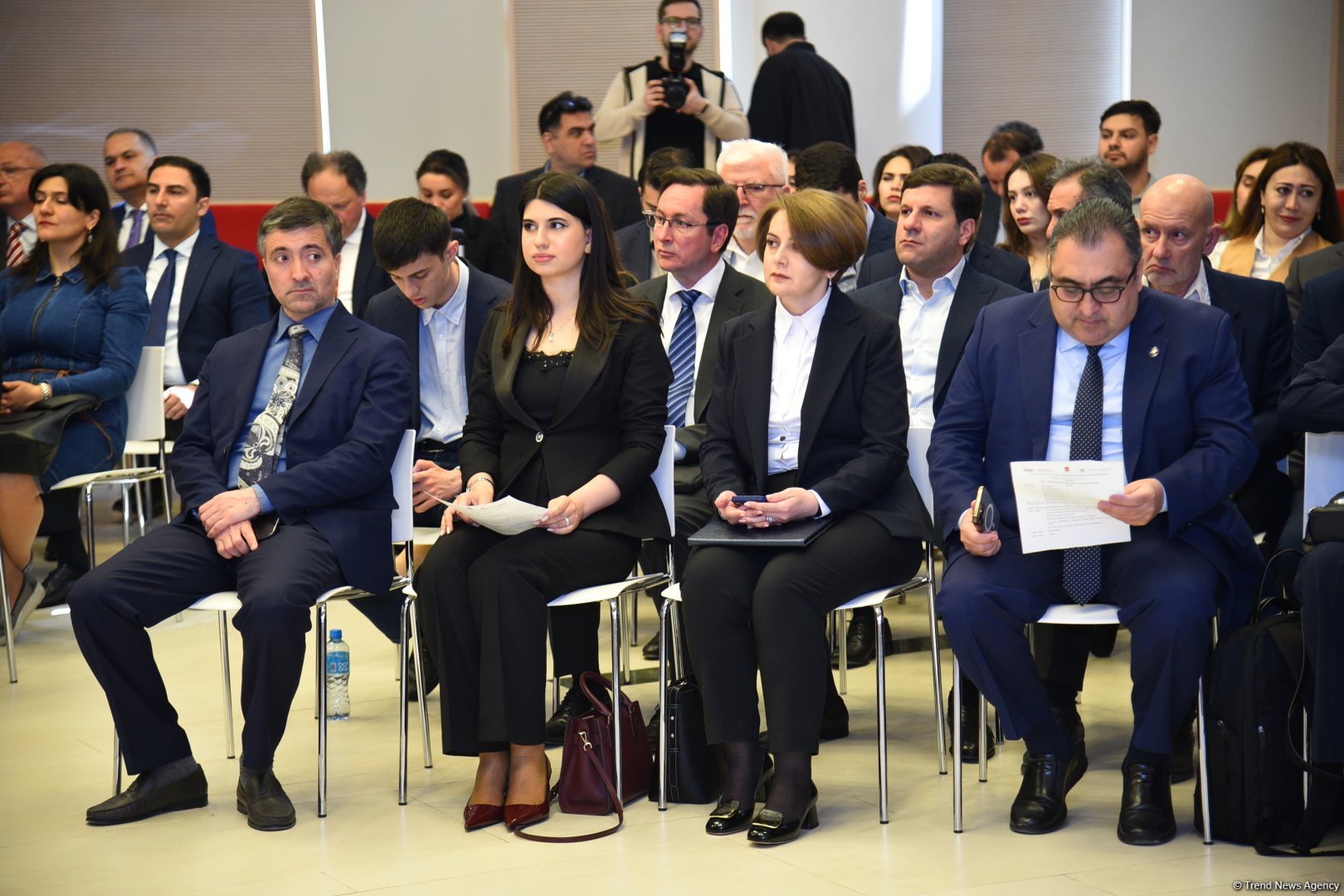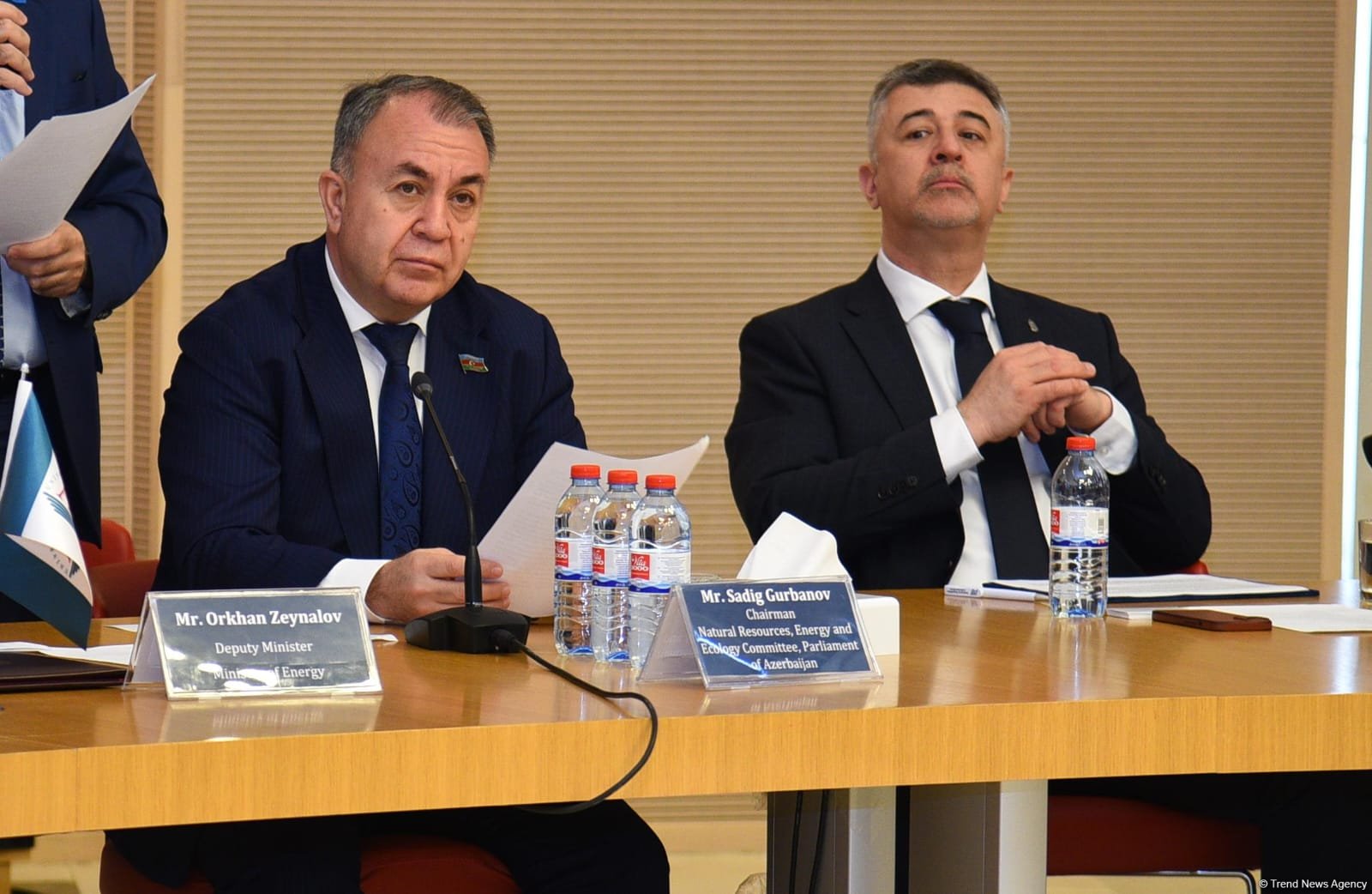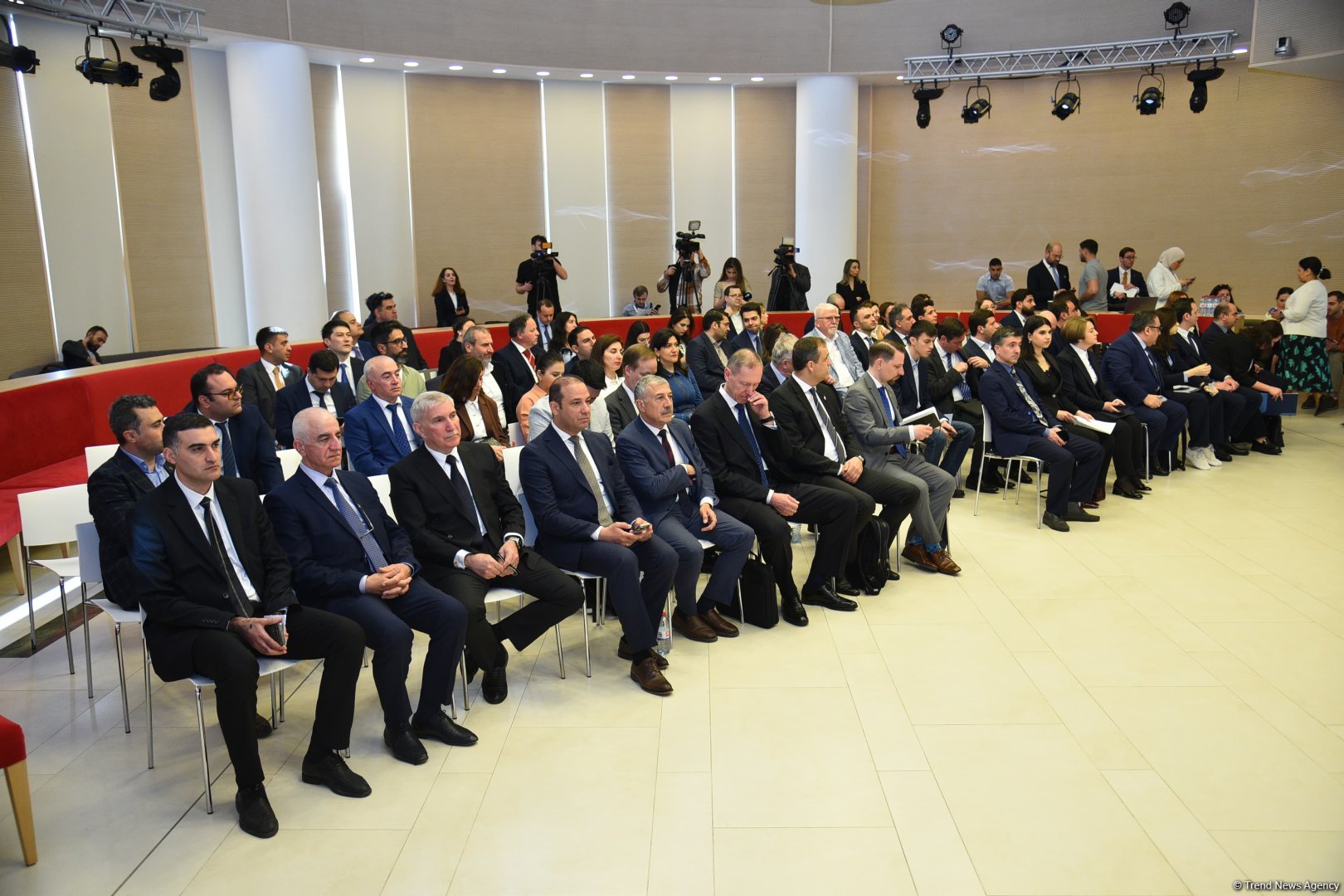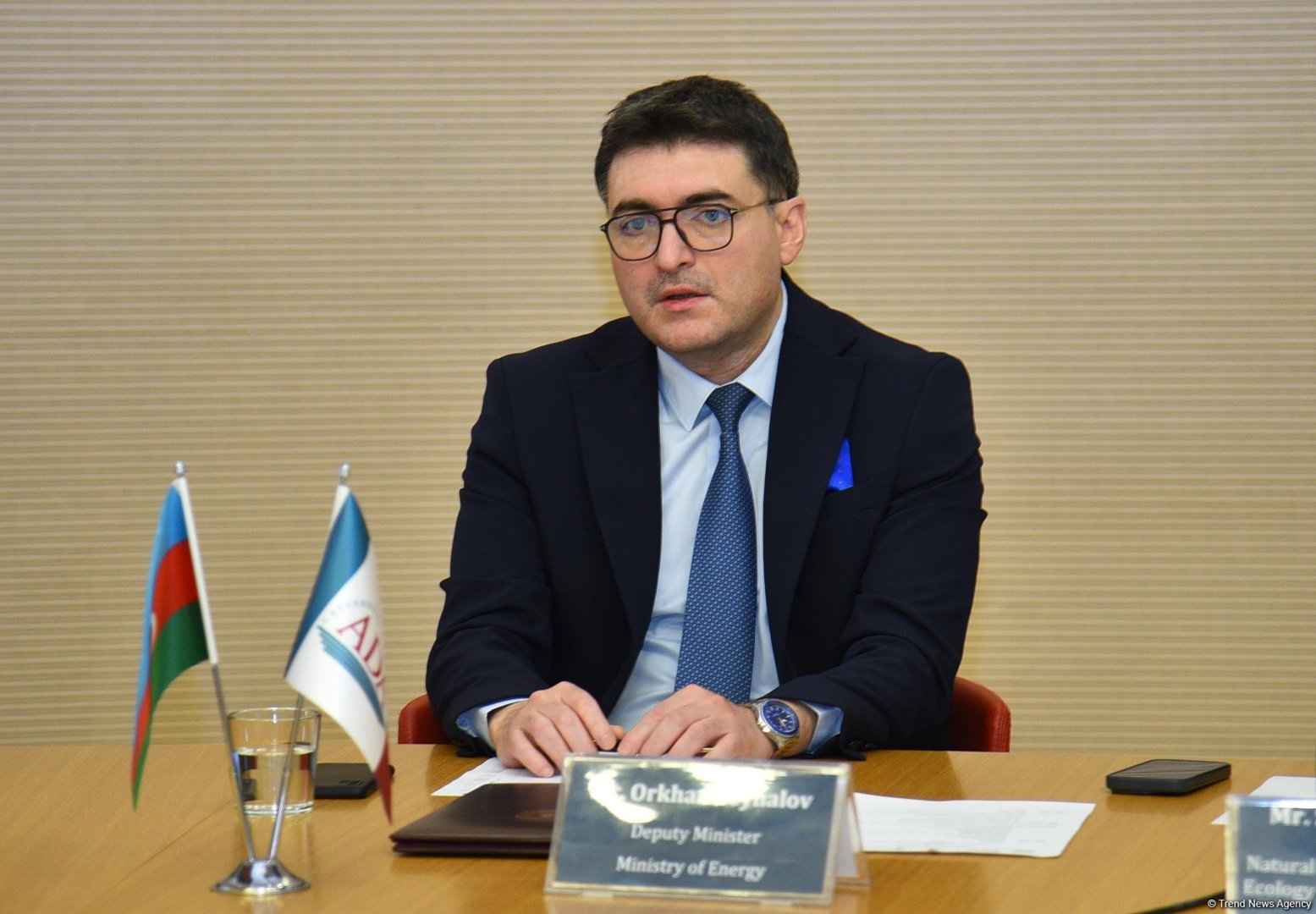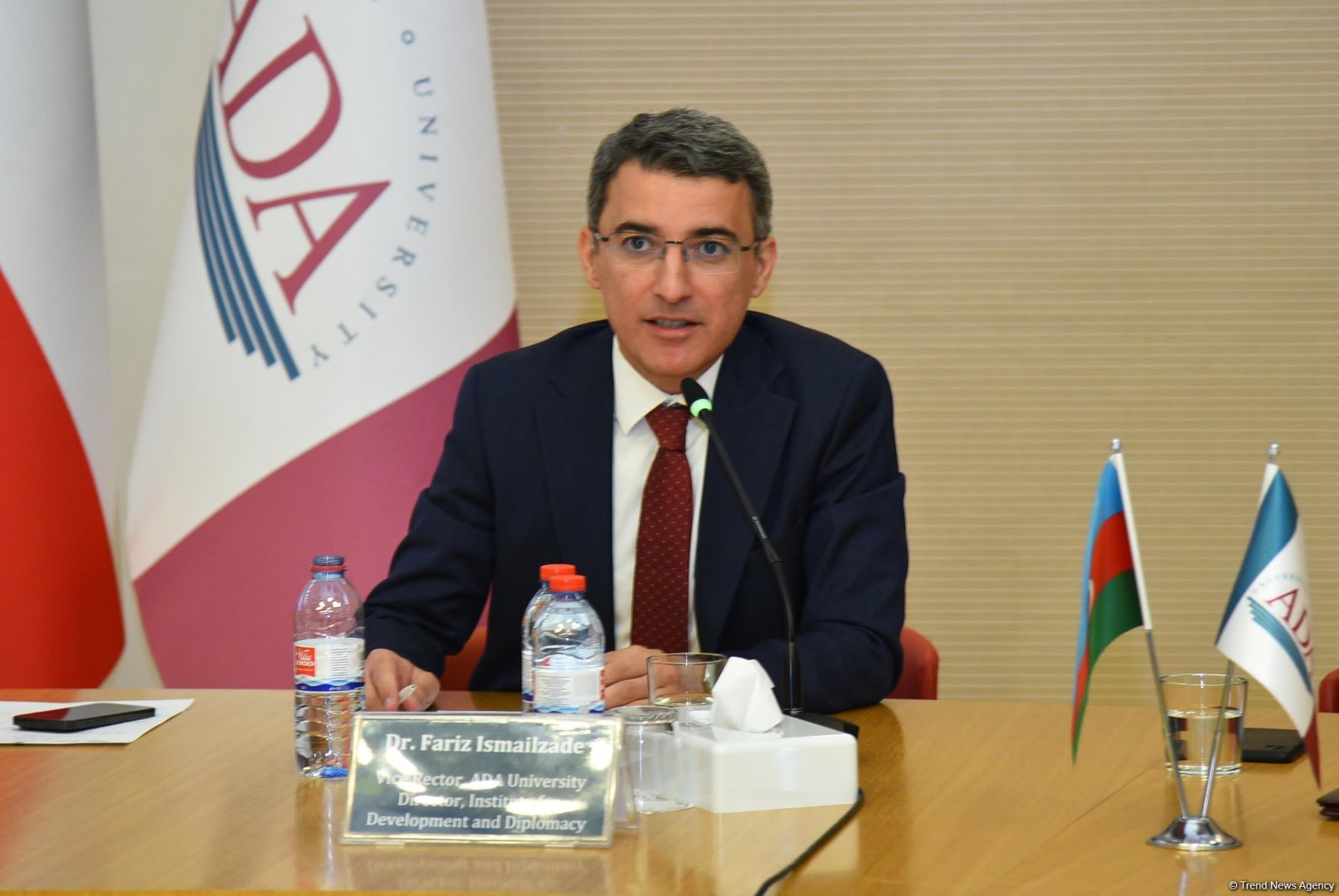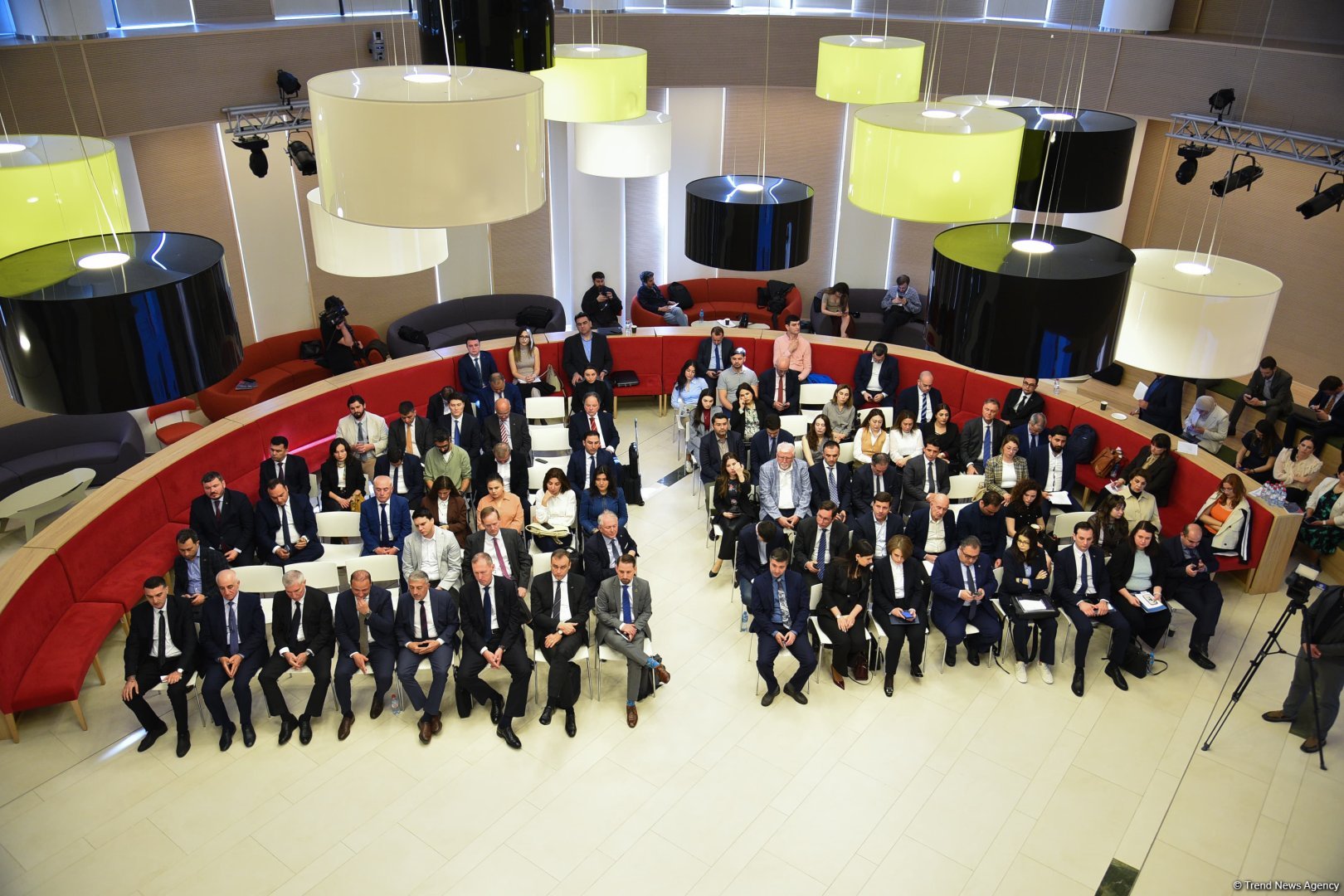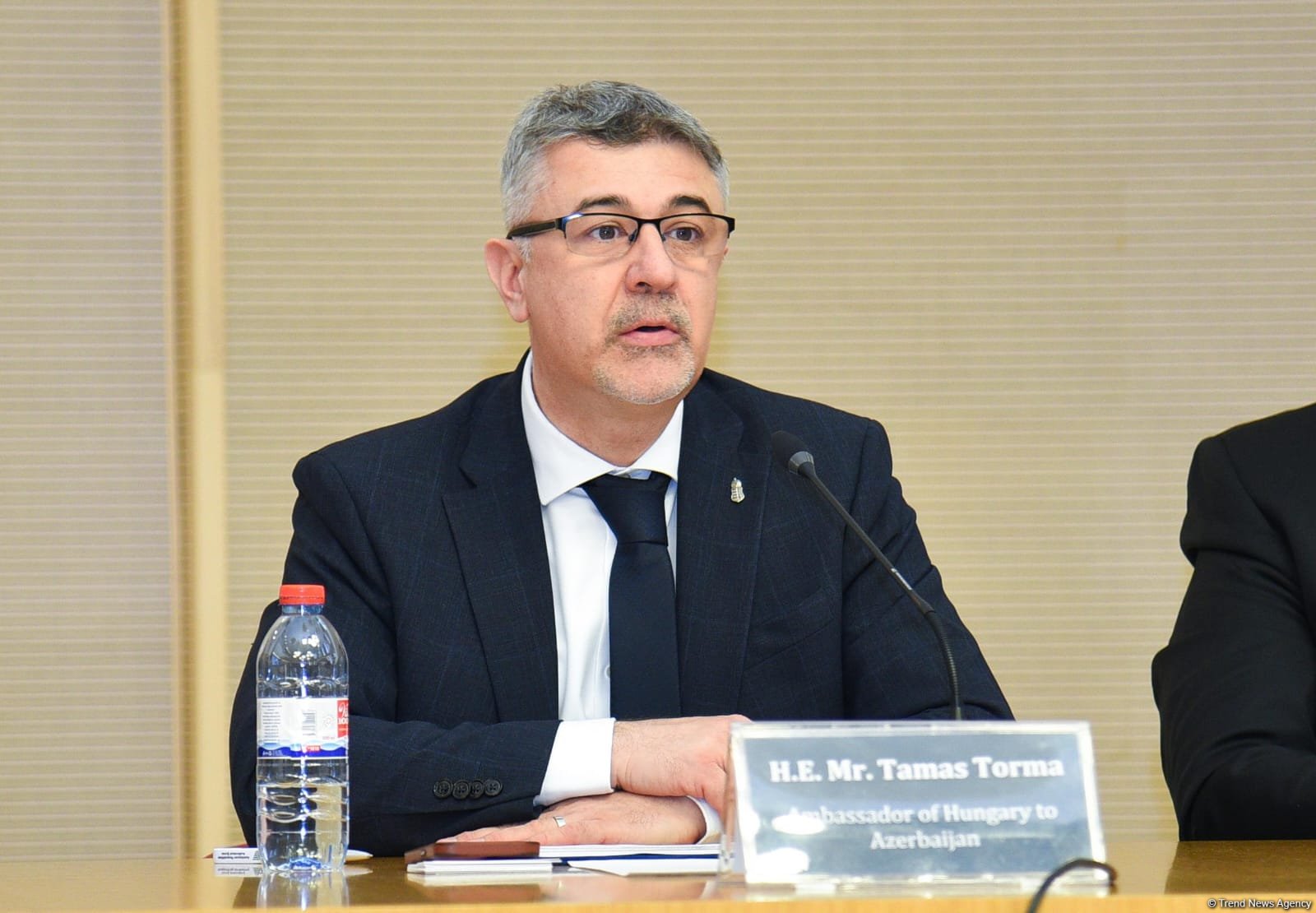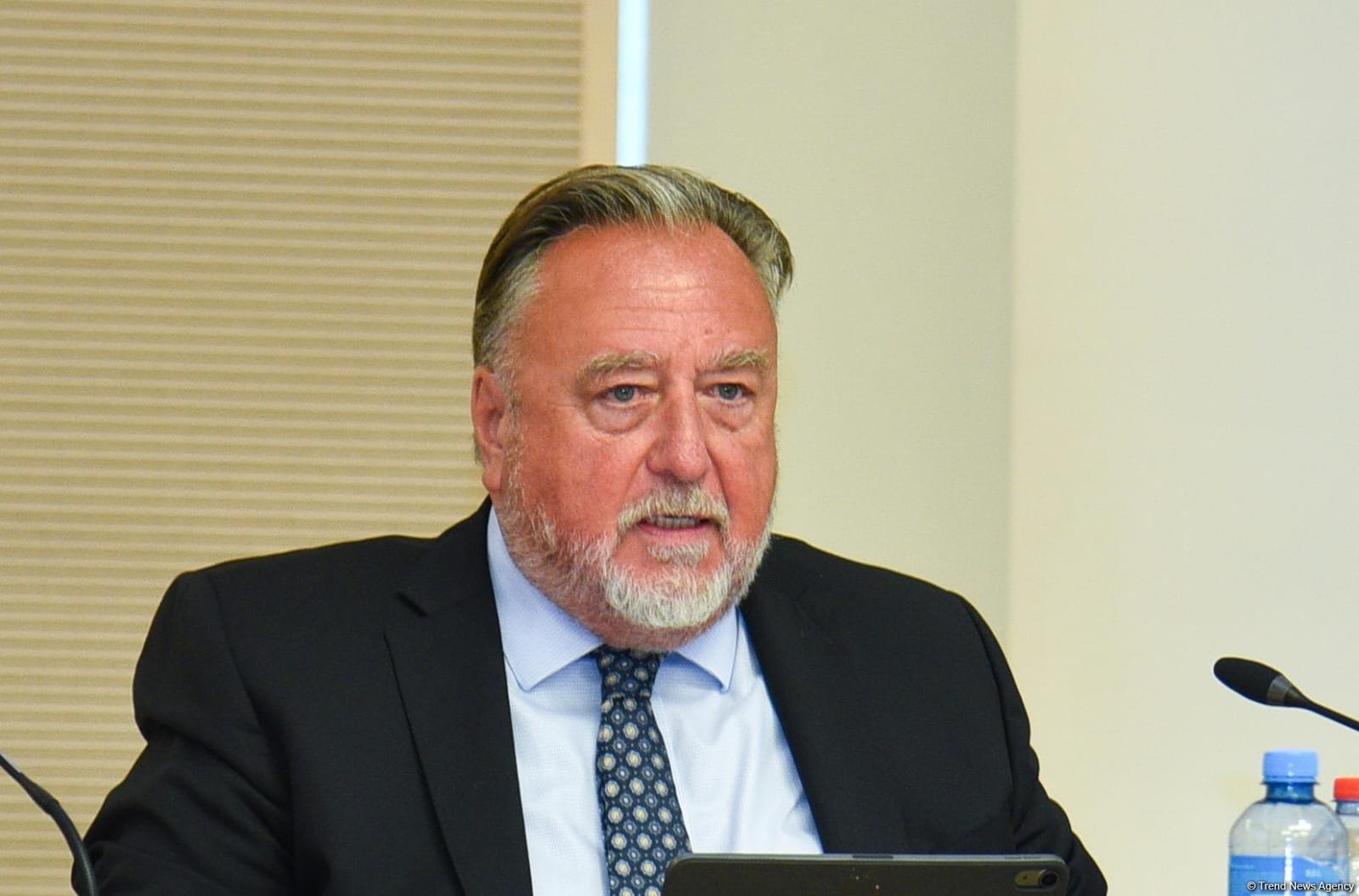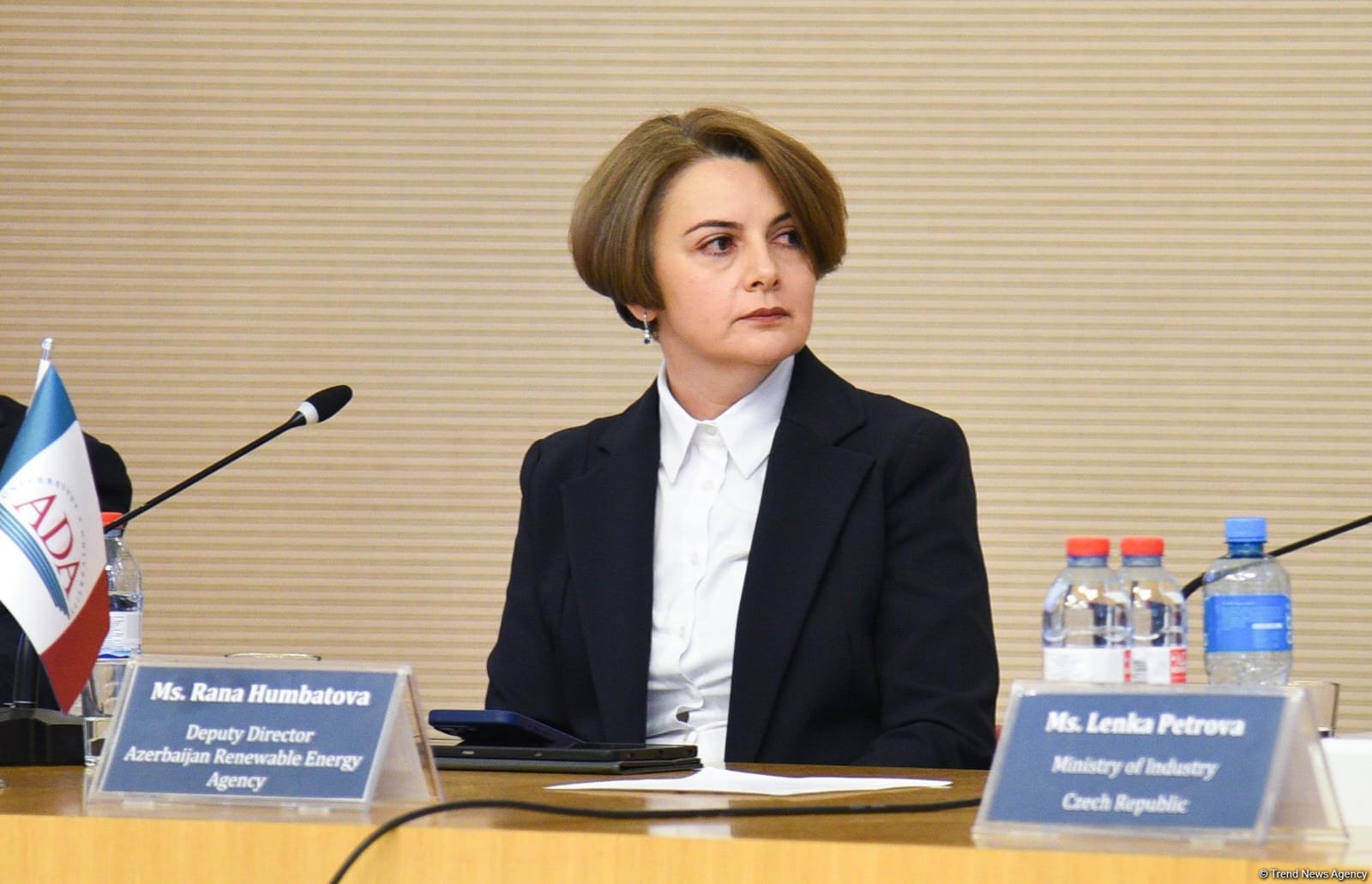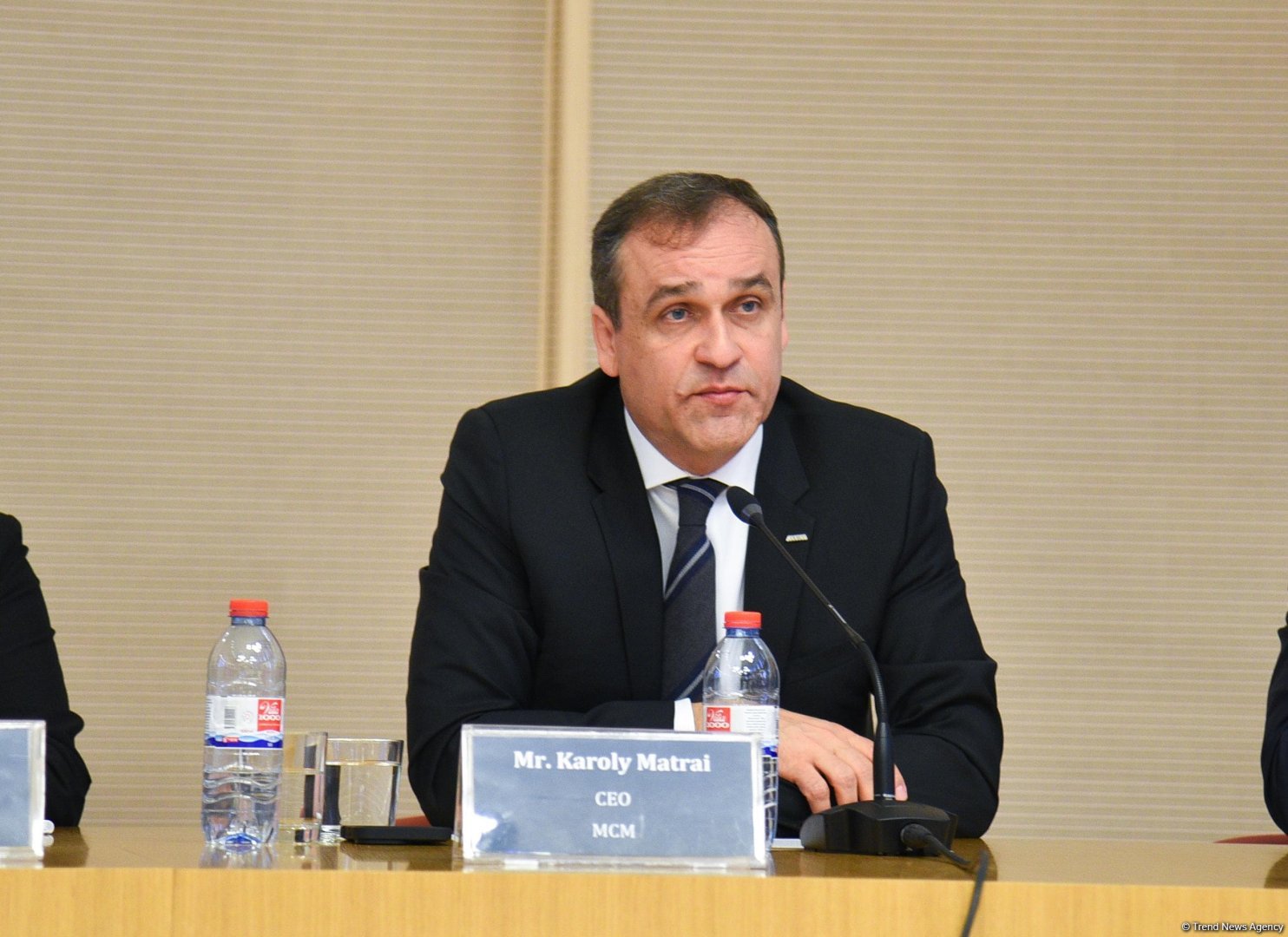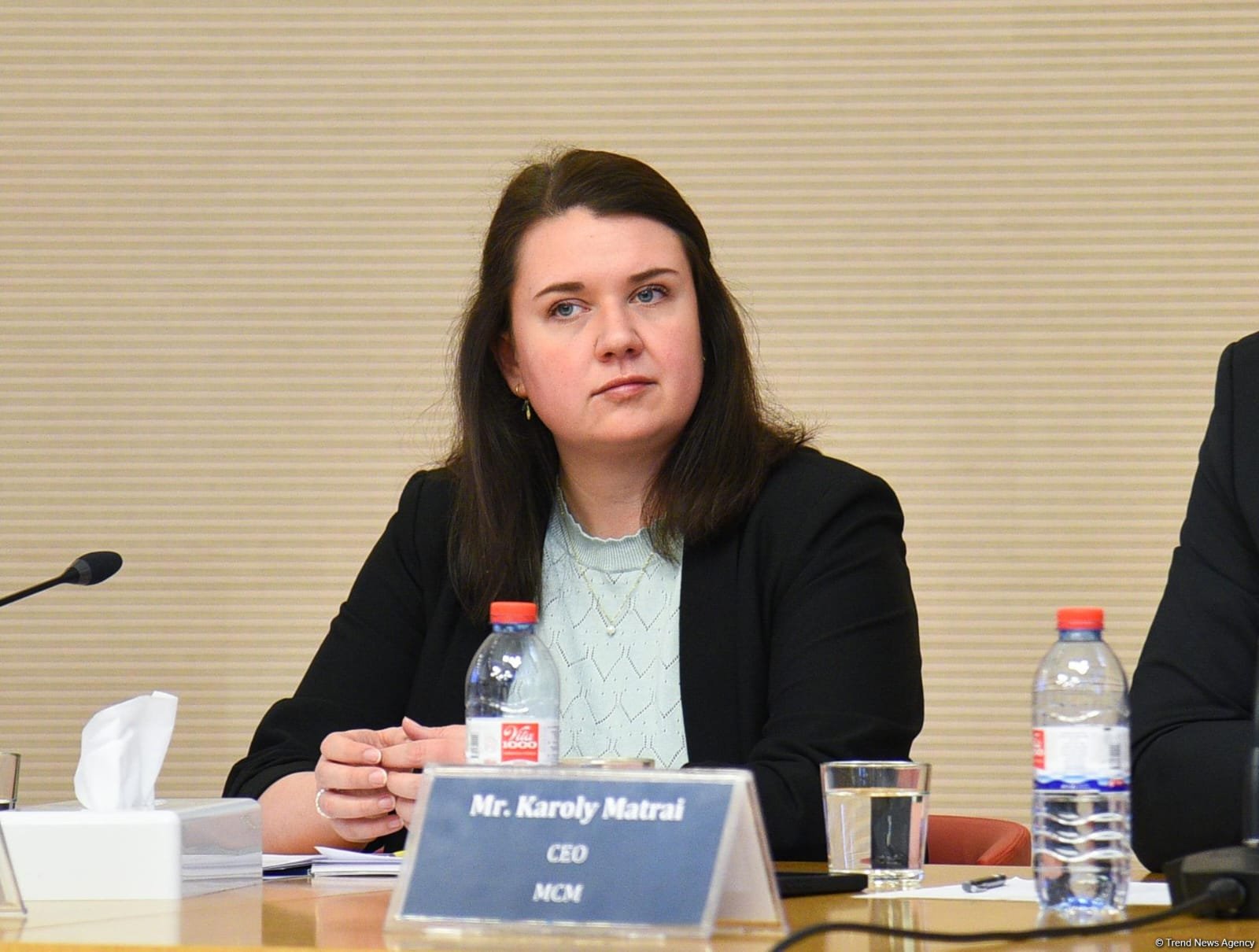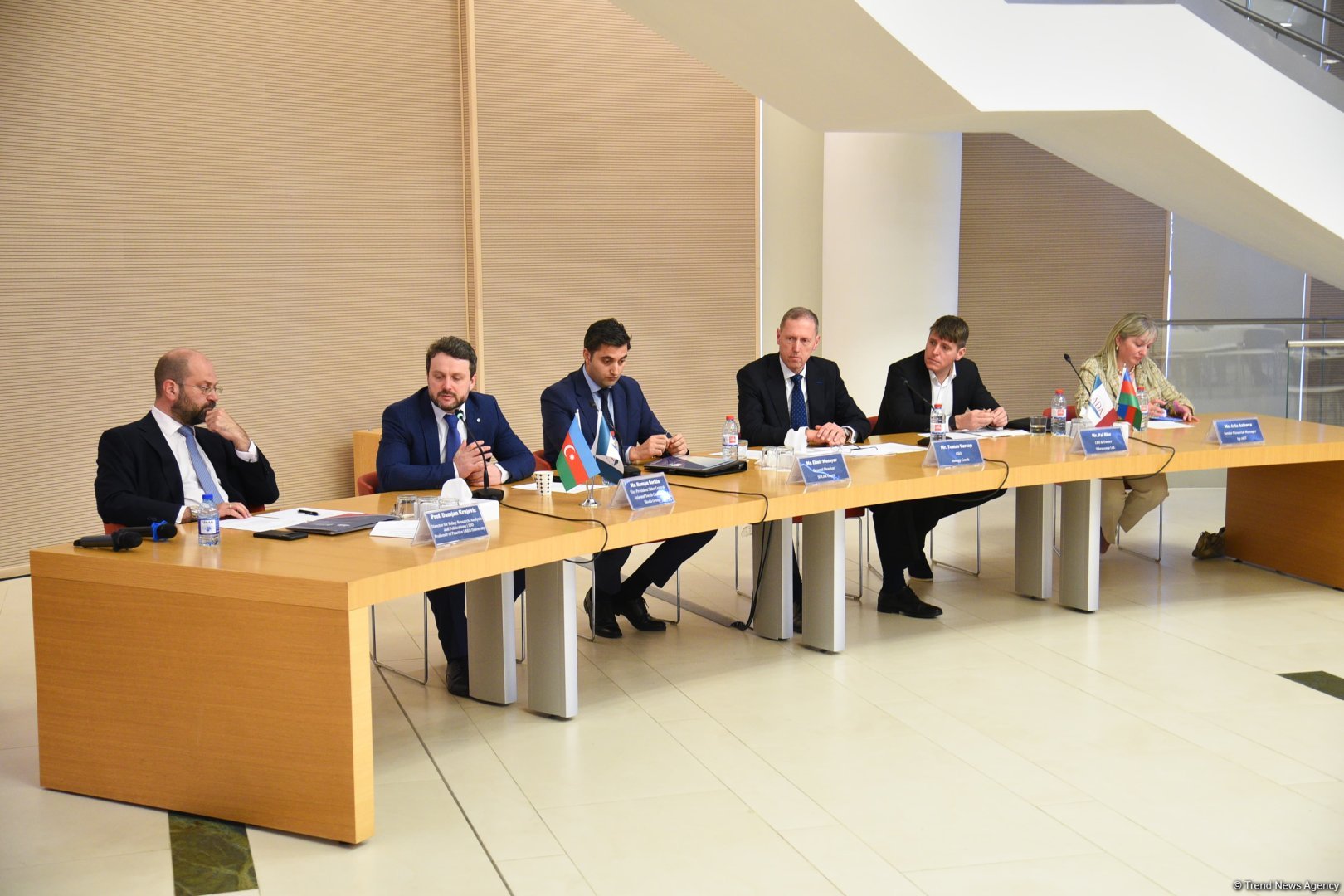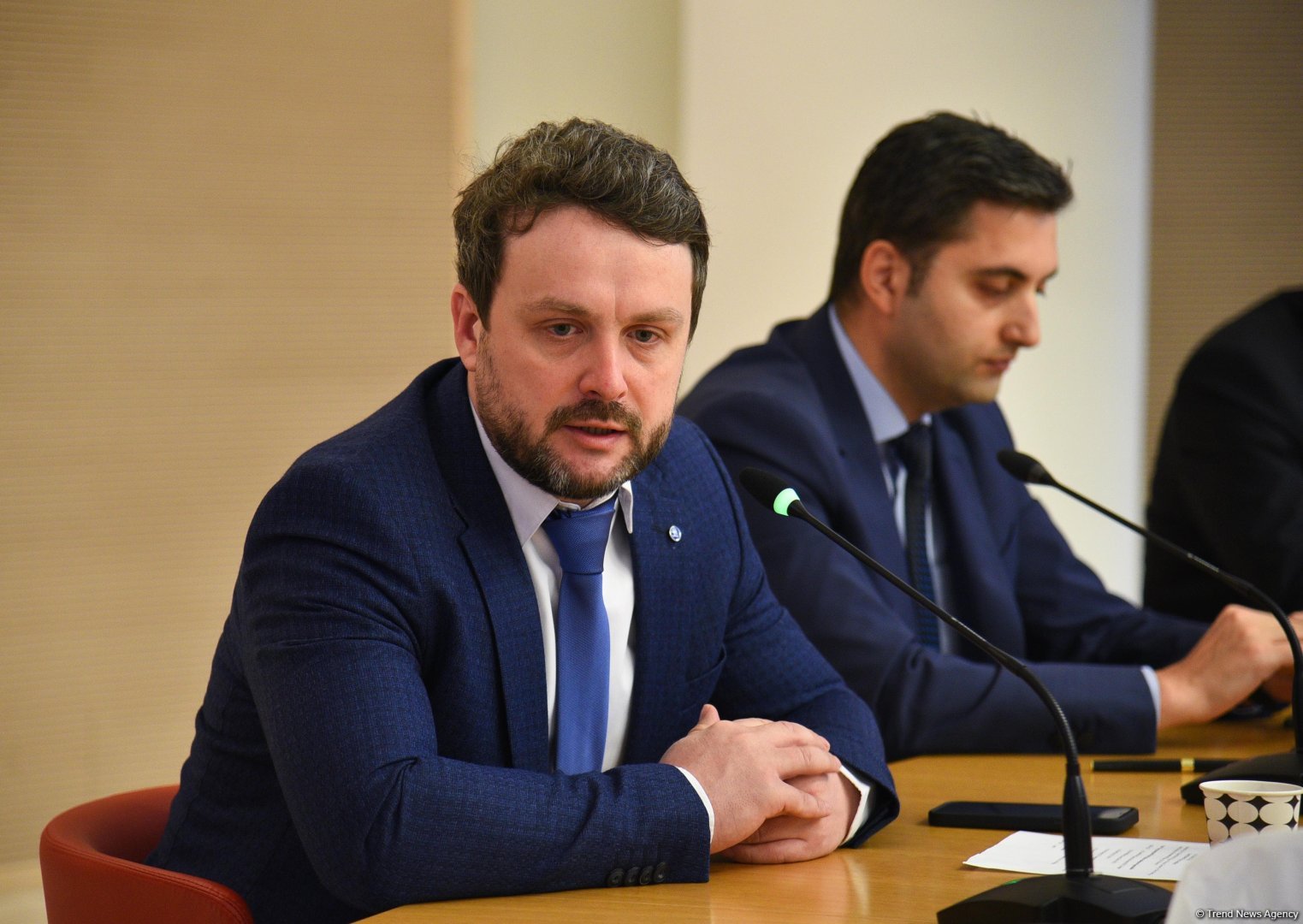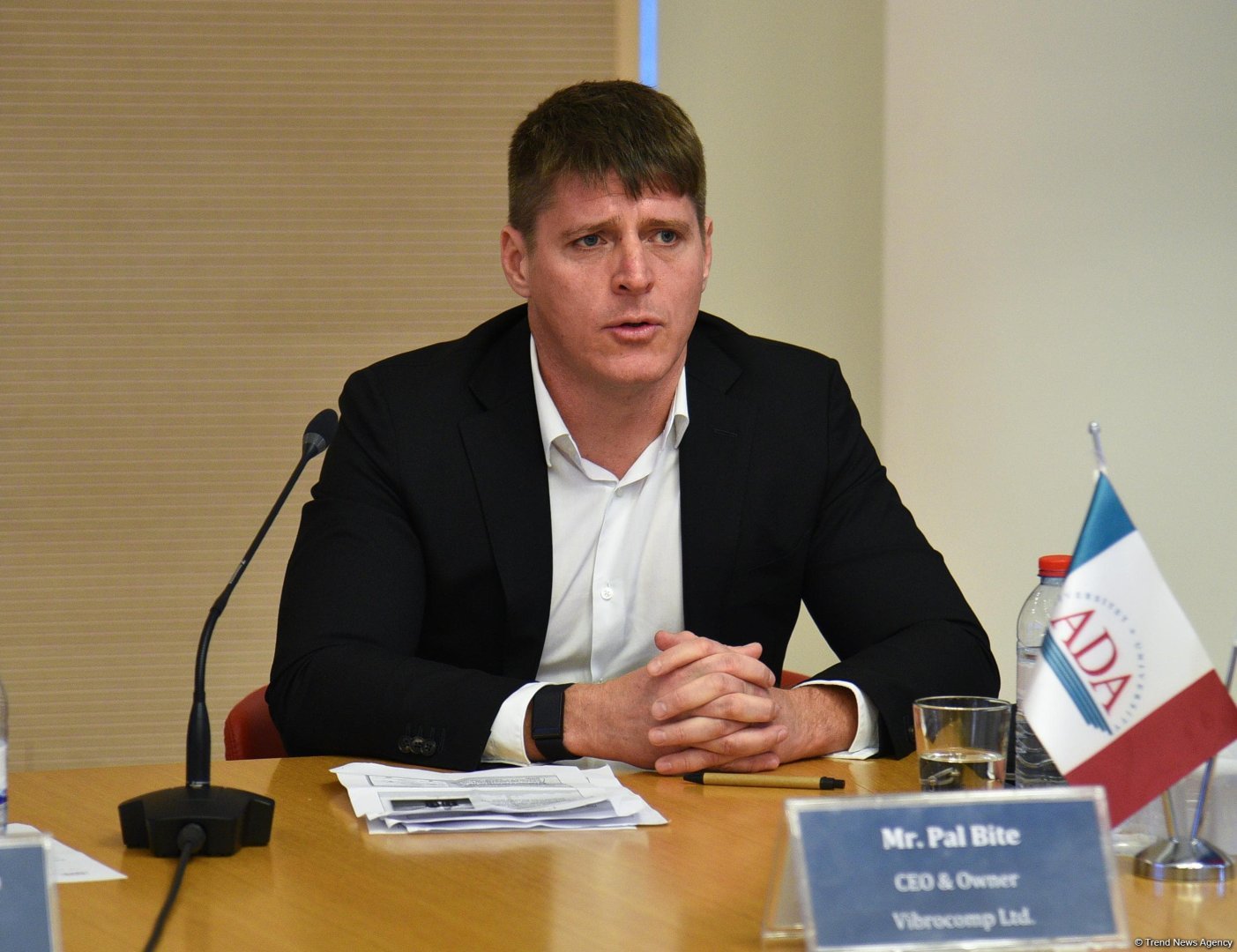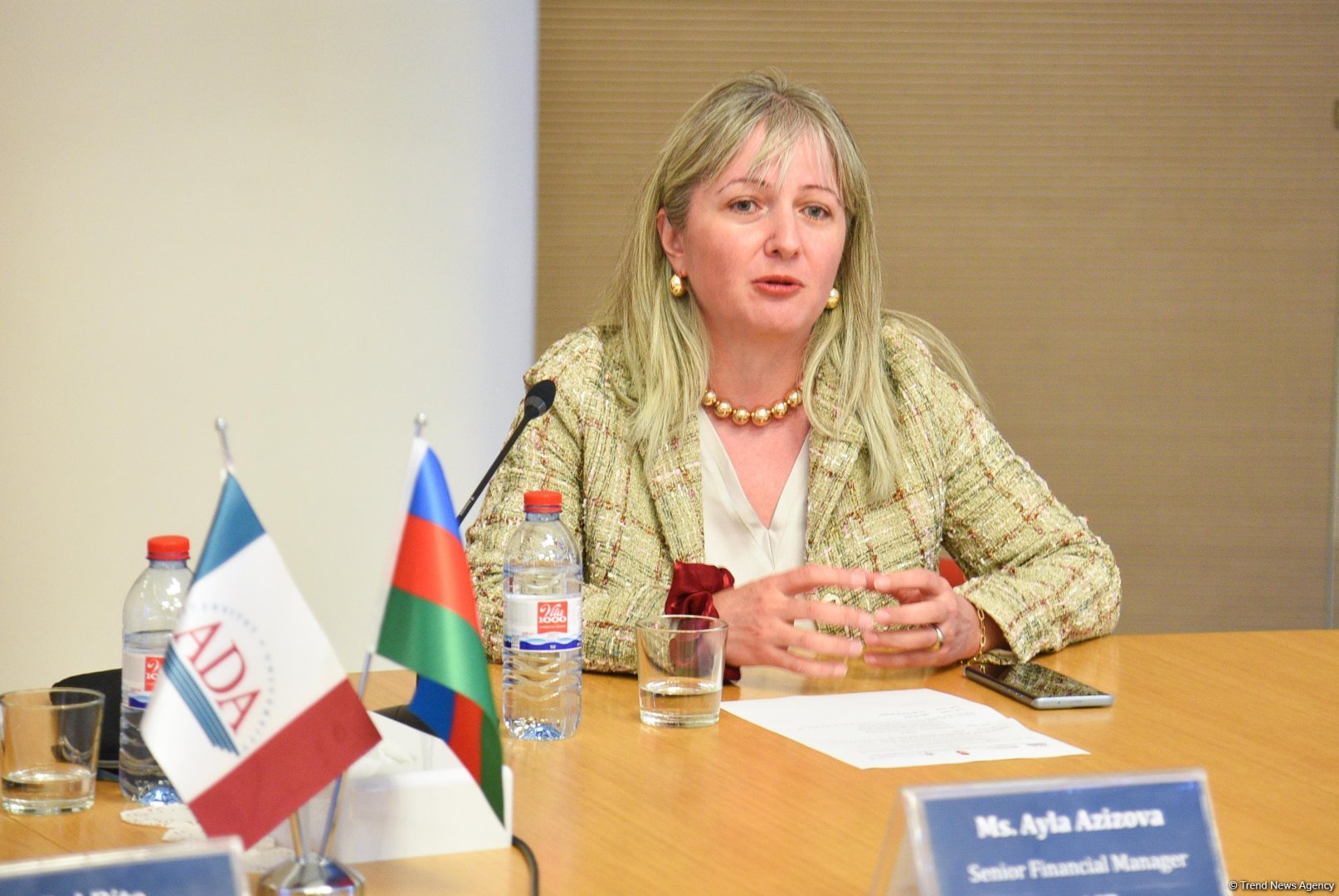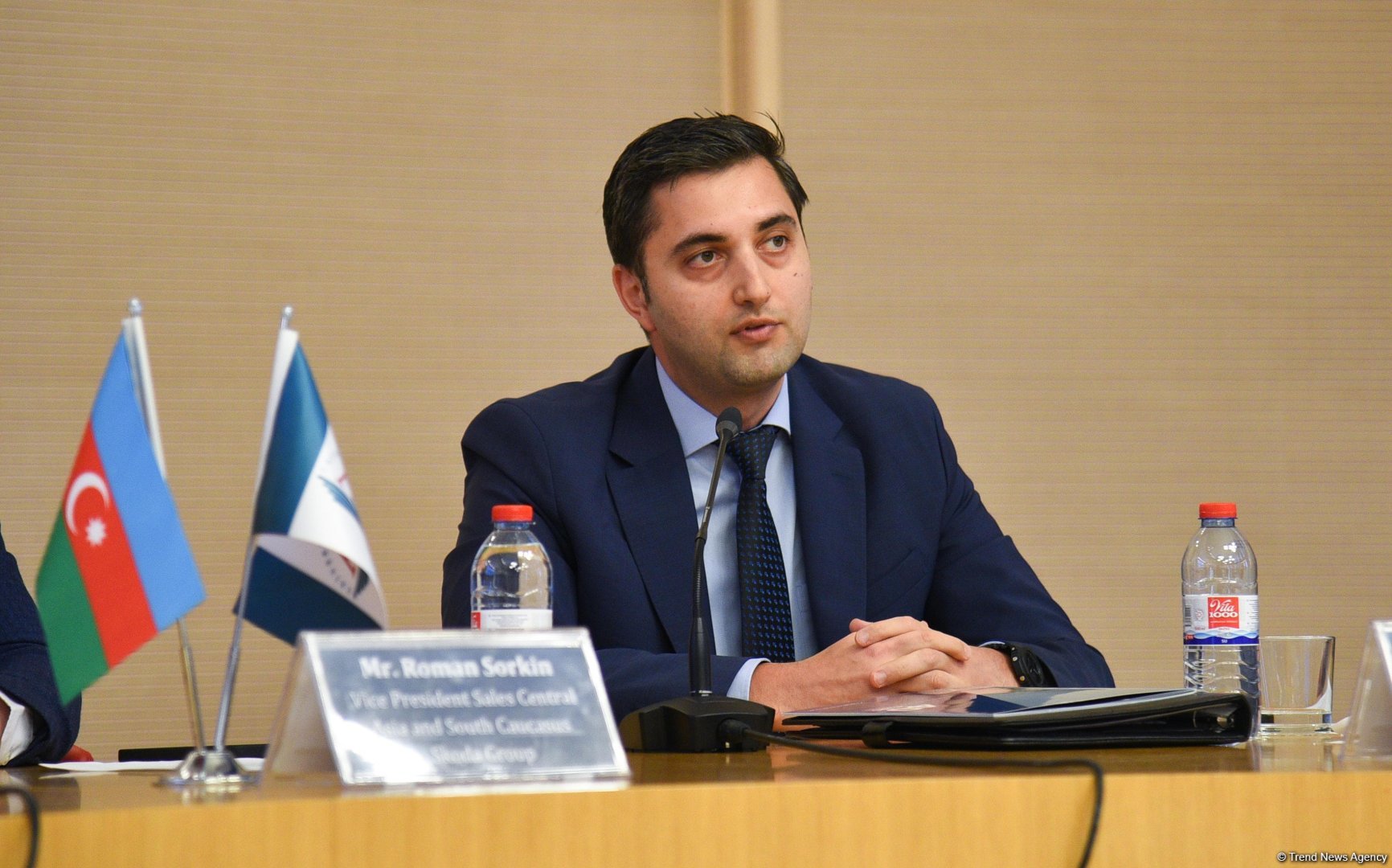BAKU, Azerbaijan, April 7. The event "Innovative paths to a greener future: Renewable Energy and Emissions Reduction" was held in Azerbaijan's Baku, Trend reports.
The event is organized by ADA University, along with the embassies of Hungary and the Czech Republic in Azerbaijan.
Attendees include Azerbaijan’s Deputy Minister of Energy Orkhan Zeynalov, Hungary’s Ambassador to Azerbaijan Tamás Torma, the Czech Ambassador to Azerbaijan Milan Sedlaček, ADA University’s Vice-Rector Fariz Ismailzade, Chairman of the Natural Resources, Energy, and Ecology Committee of the Azerbaijani Parliament Sadig Gurbanov, Deputy Director of the State Agency for Renewable Energy Sources under the Ministry of Energy (BOEMDA) Rena Humbetova, Vice President of Financial Affairs at BP for the Azerbaijan, Georgia, and Türkiye (AGT) region Colin Allan, Director of "SOCAR Green," a subsidiary of the State Oil Company of Azerbaijan (SOCAR) Elmir Musayev, and media representatives.
Speaking at an event, Chairman of the Natural Resources, Energy, and Ecology Committee of the Azerbaijani Parliament, Sadig Gurbanov, emphasized that serious ecological imbalance has developed over the past two centuries.
"The primary cause of this challenge lies in the severe ecological imbalance that has developed over the past two centuries. Wars, industrial and transportation waste, and other factors have disrupted the natural balance. Today, the greatest concern for humanity is climate change. Over the past century, the Earth's temperature has risen by around 0.8 degrees, largely due to greenhouse gases. As a result, ensuring sustainable development rooted in the principles of a 'green economy' is of the utmost importance. The transition of every country to a 'green economy' and "green energy" is critical, not only for energy security but also for its political and strategic implications," the chairman of the committee added.
In turn, Deputy Energy Minister of Azerbaijan Orkhan Zeynalov noted that, US-based Boston Consulting Group is working on the technical and economic justification of the "Azerbaijan-Türkiye Green Energy Corridor" project.
According to him, the technical-economic justification consists of two components: the "Green Energy Zone in Nakhchivan" and the Azerbaijan-Türkiye interconnector.
He added that this project represents a significant step in supporting the stability of energy supply in the region and across Europe.
The official also emphasized that Nakhchivan has high renewable energy potential and significant profitability. The region's technical potential is estimated to range from 21 to 29 gigawatts.
Furthermore, Hungarian Ambassador to Azerbaijan Tamás Torma stressed that Azerbaijan plays a significant role in ensuring Europe's energy security.
"We see Azerbaijan as a country that plays a significant role in ensuring energy security, not only for Central Europe, but for Europe as a whole. Therefore, we cooperate not only in the field of oil and natural gas, but also together with Georgia, Romania, and Bulgaria, we are developing Europe's largest agreement on “green” energy - ‘green’ energy corridor," the ambassador said.
In addition, the CEO of MVM Group, Károly Mátrai, pointed out that the import of electricity from Azerbaijan via the green energy corridor could significantly reduce electricity prices for Hungary.
"We are eager to share our experience and expertise with Azerbaijan and are keen to engage in the country’s renewable energy sector, as we recognize numerous business opportunities in the region. From Hungary's perspective, the green corridor project is extremely important.
Addressing the meeting, the Czech Ambassador to Azerbaijan, Milan Sedláček, noted that finding practical approaches to sustainable development is important.
"Our role is to translate innovative ideas into practical approaches to sustainability. Without action, we risk facing serious consequences.
Today's event aims to deepen understanding of the topic and stimulate creative solutions," he concluded.
Škoda Group Vice President for Sales in Central Asia and South Caucasus, Roman Sorkin, emphasized at the meeting that Škoda is negotiating with Azerbaijan to modernize transport with minimal investments.
" Currently, we are implementing two key projects: modernizing the Baku metro and upgrading rolling stock for suburban rail transport. Decarbonization is directly linked to encouraging people to switch from personal cars to more sustainable forms of transport, such as suburban trains," he said.
Sorkin highlighted that Škoda offers a ready-made solution for the Baku metro, which does not require large-scale investments in new infrastructure—instead, it focuses on utilizing existing assets effectively.
"Our energy-efficient solutions have proven successful in the Baltic countries, where, even without a grid connection, we used braking energy—not to return to the grid, but for purposes like lighting, heating, and other needs. On similar metro infrastructures, we managed to achieve up to 30 percent energy savings through a comprehensive approach. This is the kind of dialogue we are having with operators and companies in Azerbaijan—developing a holistic, balanced approach that allows for resource savings and avoids unnecessary infrastructure investments," he added.
In addition, Elmir Musayev, director of SOCAR green, emphasized at the event that the company is negotiating with representatives of Azerbaijan's industrial sector on cooperation in the field of decarbonization of their activities.
"Another area of our focus is supporting SOCAR in the decarbonization of their buildings and facilities. We cooperate and coordinate with SOCAR units at all levels - from production to refining and marketing - to better understand the needs. We have several small projects in the preparation stage that we will implement for decarbonization, including SOCAR's oil and gas facilities," Musayev mentioned.
He noted that SOCAR Green is in talks with industrial sector representatives in Azerbaijan, in particular with semi-production companies, to cooperate on decarbonization of their activities.
"Finally, we aim to consolidate and develop expertise in this area. This is a new direction, and simply applying technology is only part of the task. We also want to create a think tank in this area so that future generations can develop this sector in Azerbaijan," he added.

